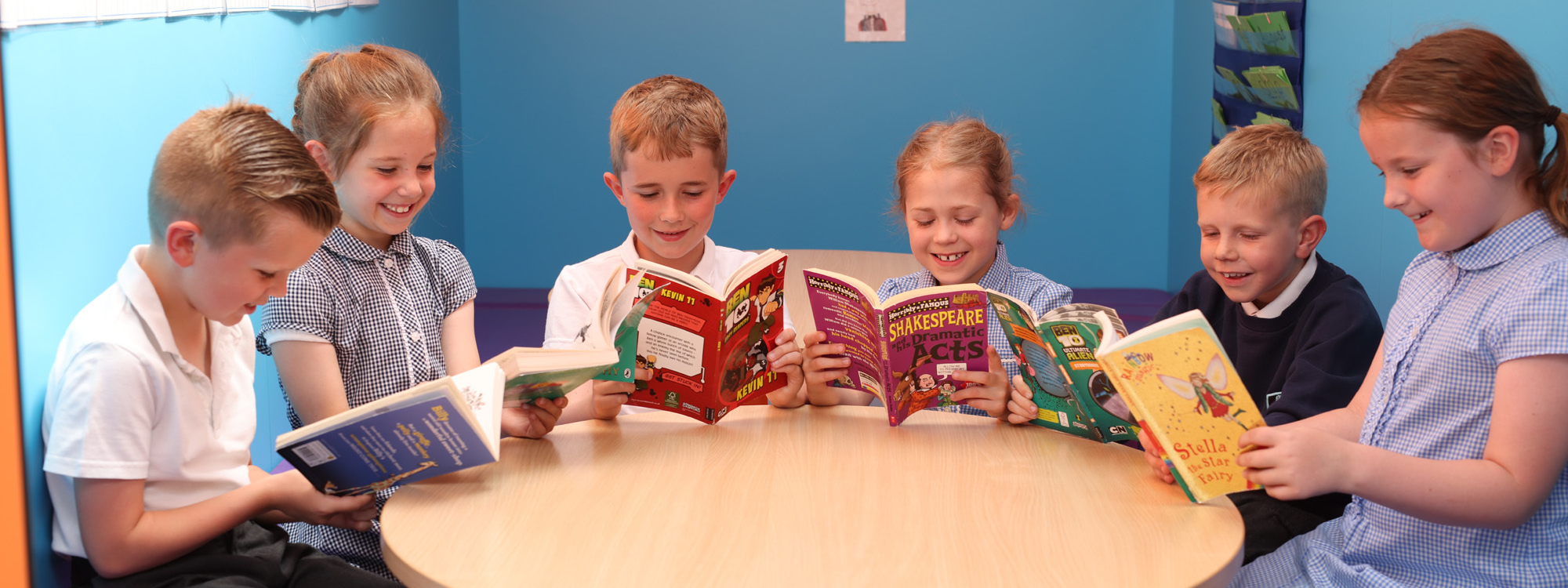- Home
- Curriculum
- Subjects
- Reading & Phonics
Reading & Phonics
Back to SubjectsAt Richard Wakefield we believe 'through reading, pupils have a chance to develop culturally, emotionally, intellectually, socially and spiritually. Literature, especially, plays a key role in such development. Reading also enables pupils both to acquire knowledge and to build on what they already know.'
Click here to access our Reading Intent, Implementation and Impact statement. ​
What does Reading look like at Richard Wakefield?
Phonics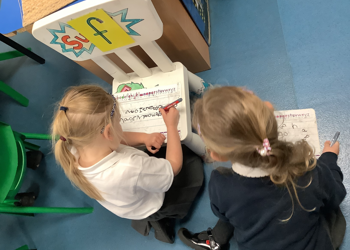
At Richard Wakefield we predominantly use the Pearson Bug Club Phonics scheme. This helps them to link new phonemes to a rhyme or phrase that can be easily remembered. Pupils in Early Years and KS1 receive daily phonic sessions that focus on learning new sounds to read and then also write. Children are taught phonics in a systematic way that allows pupils to build on their understanding of letters and groups of letters to decode words and then also segment to spell words.
We use the following Letters and Sounds phases to help guide our teaching.
Phase 1 (Nursery & Reception) – Children are taught about environmental sounds, instrumental sounds, body sounds, rhythm and rhyme, alliteration, voice sounds, oral blending and segmenting of words.
Phase 2 (Reception) – This phase introduces children to single letters and the sounds that they make. They use this to blend to read simple words and also segment to write simple words. Some tricky words are also taught during this phase.
Phase 3 (Reception) – During this phase, children are taught the remaining single letter sounds but are also introduced to digraphs where more than one letter is used to create one phoneme. (Sound)
Phase 4 (Reception) – Pupils continue to build on their grapheme to phoneme correspondence but are also exposed to longer words with adjacent consonants.
Phase 5 (Year 1, start of Year 2) - This phase tackles more complex sounds that have alternative graphemes for phonemes. They will also learn alternative pronunciations for graphemes.
Phase 6 (Year 2) – This phase predominantly concentrates on phonics for spelling. Pupils explore what happens to root words when prefixes and suffixes are added. We use the Spelling Zone online Programme from Oxford Owl to support our work in this phase.
Throughout the phases pupils are exposed to the correct terminology linked with phonics and spelling. For more information click here.
Reading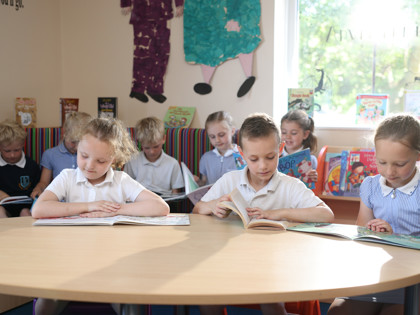
We understand the importance of reading at Richard Wakefield and we want our pupils to gain an enjoyment of books and a passion for reading. We promote reading for pleasure by accessing reading activities in many areas across the curriculum. We ensure that reading is highly valued and addressed in a variety of the following ways;
-
Shared reading as a class and in pairs (20 – 30 minutes 4 times a week)
-
Individual 1:1 reading sessions (a minimum of once a week, more if required)
-
Shared texts in English lessons as well as other subjects
-
Class books are shared regularly throughout the week
-
Frequent visits to our school library
-
Interactive, engaging reading areas in each classroom to promote independent reading
-
Reading skills displayed in classrooms appropriate to year group
-
High expectations of reading at home (either to an adult and/or independently)
-
Lunchtime Reading library which allows pupils to read during their lunch break over the summer months
-
Regular ‘Buddy Reading’ sessions with other classes where pupils get the opportunity to share books with a child from a different Key stage.
-
Please find our reading progression map here, highlighting the skills taught in each year group.
We rapidly identify pupils who are not making the expected progress in reading and plan interventions to help them close the gap.
We use Pearsons Bug Club for our reading scheme, which allows pupils to access a wide range of genres but also enables them to access reading materials online from home.
We also regularly celebrate reading in school by presenting certificates to pupils who read frequently and we often enjoy reading enrichment activities such as World Book Day, visits from authors and The Reading Café.
To ensure all children have access to a variety of books at home, we have opened our 'little libraries' which are based at the entrances of school. We invite children to borrow and swap the books in the little library, encouraging their love of reading.
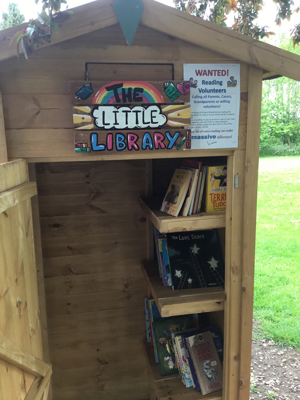
We recently held a reading workshop for parents in KS1 and KS2 about our reading offer at RW. Here is the PPT we used. If you couldn't make it, feel free to have a look.
World Book Day!
Here are some pictures from a World Book Day in school where we explored the wonders of words; diving deep into the vocabulary of our favourite books. We often set a theme such as wonderful words or favourite characters (to name but two).
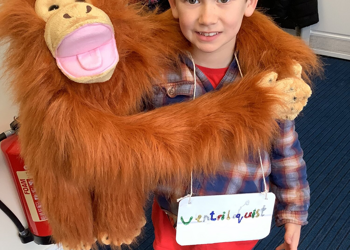
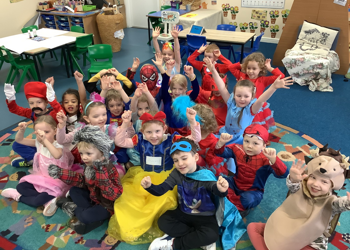
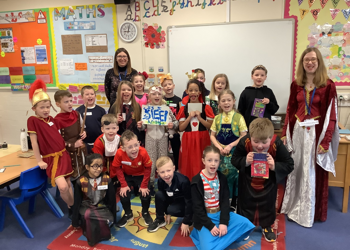
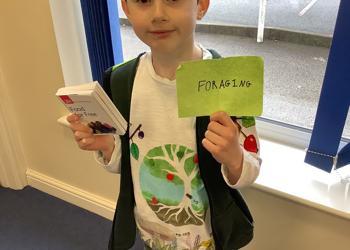
Bug Club
What is it?
'Bug Club is a powerful whole school reading programme that is proven to raise attainment in reading and spelling – and loved by over a million children in the UK. It brilliantly combines stunning books and an incredible online reading world, filled to the brim with kid-favourite characters, to hook children into a lifelong love of books and develop confident young readers.' Pearson Website.
Each child in school has their own personal account with personal username and password. This is the same account that the children access for their maths homework (Years 1 - 6).
Reccomended Reads
The following documents are organised by year group: they are a set of books that are recommended by Pie Corbett, an English specialist who is passionate about improving reading and writing experiences for all children.
Branching Out
Do you have a favourite author? Is it is Roald Dahl, Julia Donaldson, David Walliams or someone else?
Having a favourite author is great and reading all of the books they have written can be fun but finding a new author is also very exciting.
On this page you will find some super suggestions related to some of your favourite authors. Just click on one of the documents below to discover 10 more brilliant reads.
You could even record a book review about one of these books. If you are interested in recording a book review, please see Mrs Wiles.
Happy Reading!
Beast QuestDiary of a Wimpy KidHorrible HistoriesJacqueline WilsonDavid WalliamsJulia DonaldsonHarry PotterThe Worst WitchThe Magic RainbowThe Famous FiveSupertatoRoald DahlMichael Morpurgo
Summer Reading Challenge
If you want a challenge for the holidays, then try to complete our Richard Wakefield Summer Reading Challenge. Download the attachment below and see if you can complete all of the challenges over the 6 week holiday. Good luck!
